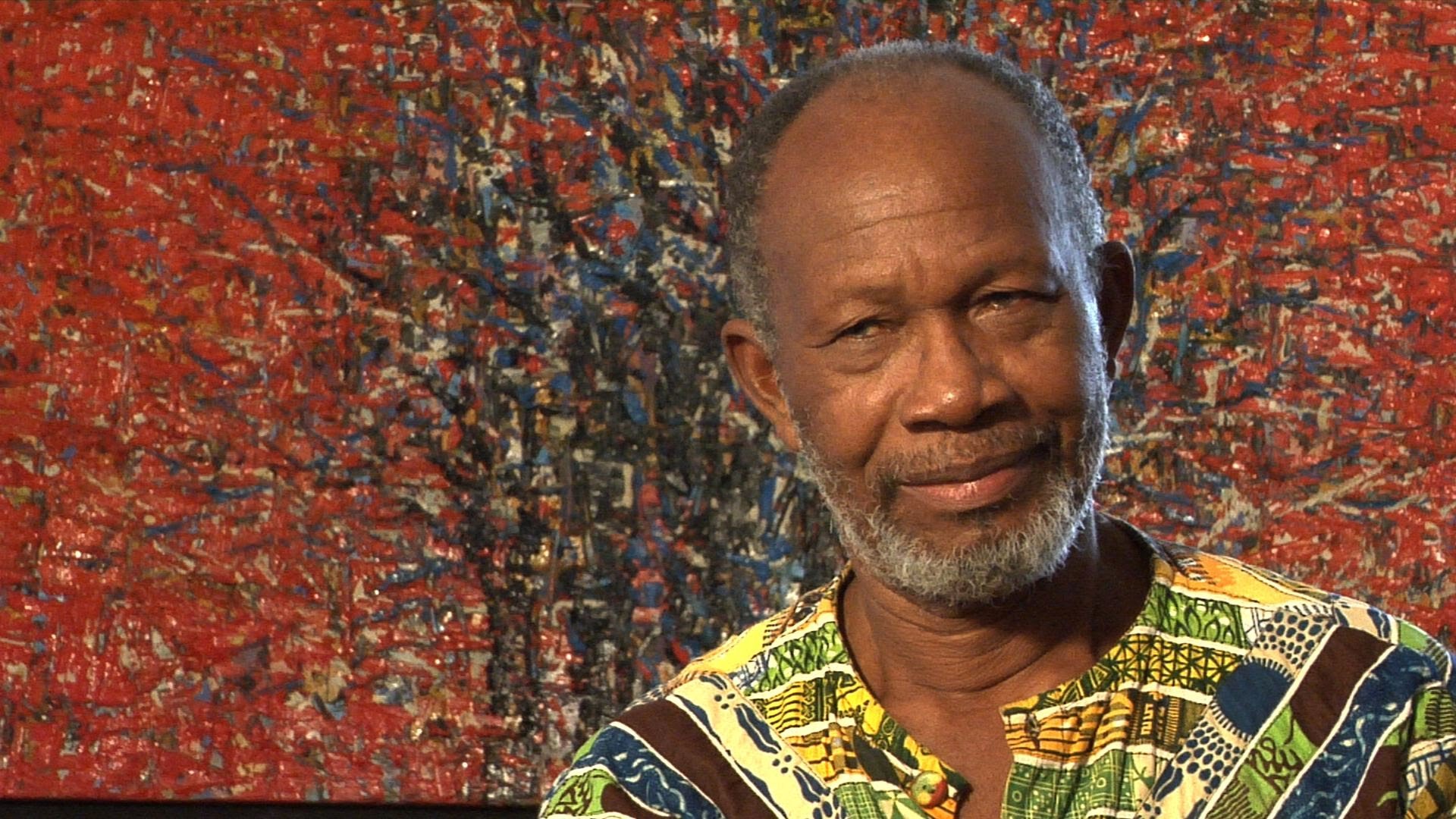.
In the premises of “ARTIST ALLIANCE”, the art gallery and exhibition place which he originally founded in the 1960ties as a young art lecturer and which is now located at Labadi Beach on the oceanside in Accra, Prof. Ablade Glover talks to Safia Dickersbach about his life and work as one of the prominent contemporary visual artists in Ghana who is well-known not only in his home country, but also beyond.
Ablade Glover combines a decades-long teaching career in art education culminating in the position of Dean of the College of Art and Head of the Department of Art Education at the University of Science and Technology in Kumasi with an even more successful career as a visual artist which turned him today into a kind of elder statesman for the contemporary Ghanaian art scene. During his work as an art professor, Ablade Glover recounts, he came to the conclusion that he loved the art more than the teaching so that he started to shift the focus of his activities towards becoming a full-time painter.
When asked about whether being an artist should be considered a job or profession, Ablade Glover points out that he never felt bored, tired or exhausted while working on his canvasses and that in his view this distinguishes an artist’s career from a day-to-day job to earn a living. He never experienced any aversion or dullness while working in his studio, whereas in a normal professional environment people very often complain about feeling tired from working and disaffected with their job.
Ablade Glover describes himself as a contemporary artist, a contemporary African and specifically a contemporary Ghanaian artist and thereby contradicts the widespread false conception that African art has something to do with traditional masks and art forms which some Western (“international”) experts call primitive or tribal art. While emphasizing foreign influences in his upbringing, Ablade Glover’s body of work is characterized by an adaptation of those influences and their implementation in an accomplished synthesis with archetypal African motifs, colours and sceneries.
Outlining the main themes of his paintings, Ablade Glover explains that his work is centred on “chaotic” situations in public life like street and market settings. Locations and events which present themselves in an undefined and unstructured shape form the basis and motif of his images. “Nothing structured beautifully defined” could be taken as a motto for his artworks, or – as the Ga people would say – “Basa basa, gidi, gidi”.
One of the themes in Ablade Glover’s paintings is the African market. In his words the market is a “culture within a culture”. The visual elements in a market as seen by a viewer looking at it from some distance are constantly moving, changing, actively and vivaciously going here and there, ephemeral and fleeting impressions which only get to a frozen standstill in the moment they are captured by a photographer. Ablade Glover, however, is not interested in capturing a snapshot in time, but his intention is to visualize the dynamics of the momentary and ever-changing character of the short-lived and transitory colours and shapes of market and street scenes in paintings which are set at the boundary between expression and abstraction.
Other topics of Ablade Glover’s art are forests where the irregularity and the movements develop as a consequence of the wind blowing through branches and leaves.
The essence of Ablade Glover’s artistic motifs is a celebration of the contemporary culture as he sees and experiences it in daily life on Ghana’s streets and markets. Similarly to Wiz Kudowor, Ablade Glover describes his art as celebrating the life as he sees and feels it all around him just in the very moment he depicts it in his paintings.
Concluding his account of his life as an artist, Ablade Glover says that art is the only thing that takes him out of this world, his studio is the place where he can forget himself, all his worries and everything that is around him.
ABLADE GLOVER on THIS IS AFRICA: http://bit.ly/17XMdMv
ABLADE GLOVER facebook album: http://on.fb.me/1dLazho
Read about the project on “This Is Africa”: http://bit.ly/16ejiHb
Editing: David Picard
Camera: Enes Hakan Tokyay
Music (for the questions): Ayo Nelson-Homiah — “Express”
Music (for the credits): Sarkodie (Feat. E.L.) — You Go Kill Me
A film by Safia Dickersbach
FACEBOOK: https://www.facebook.com/pages/SHOWCASE/203245376412487
.
source

